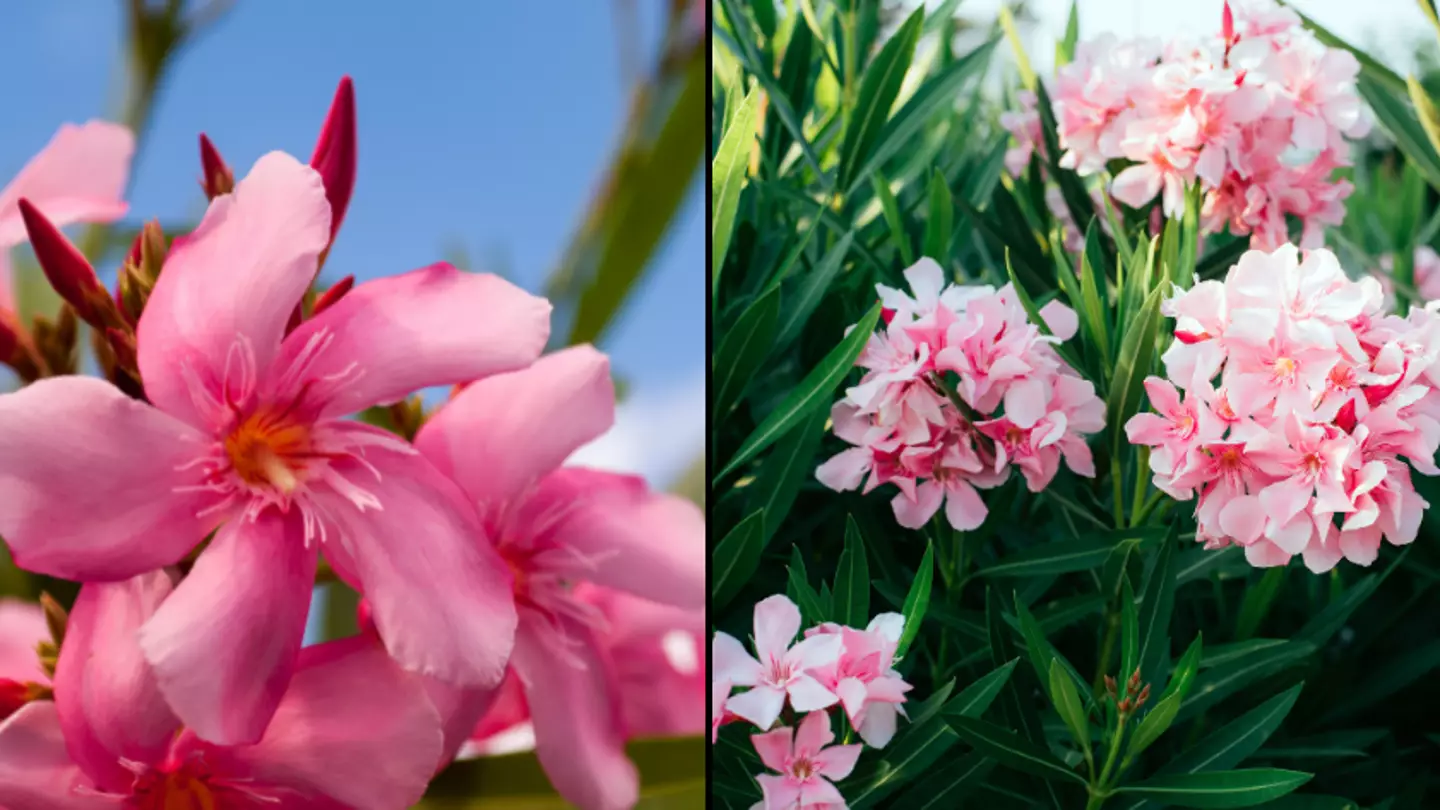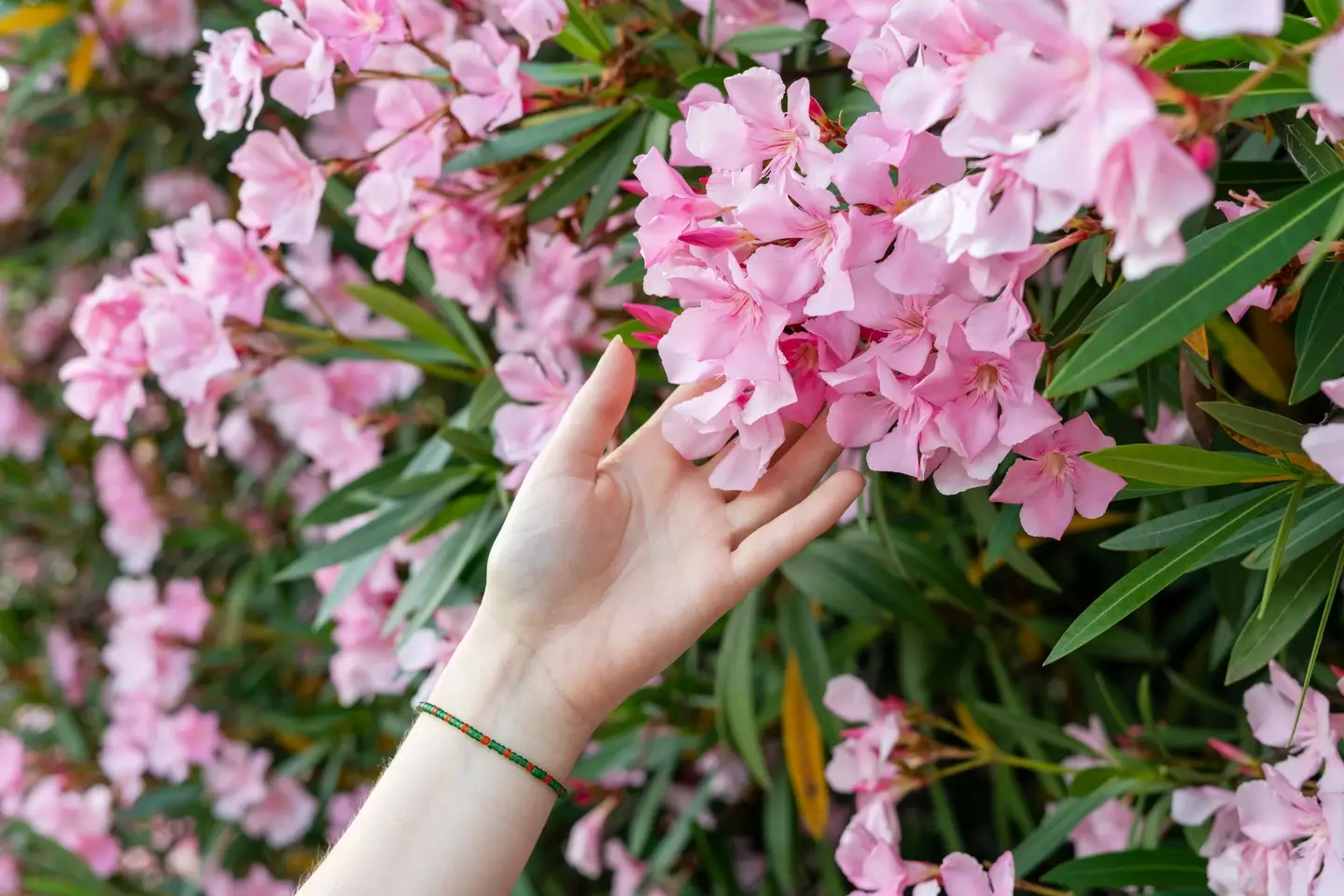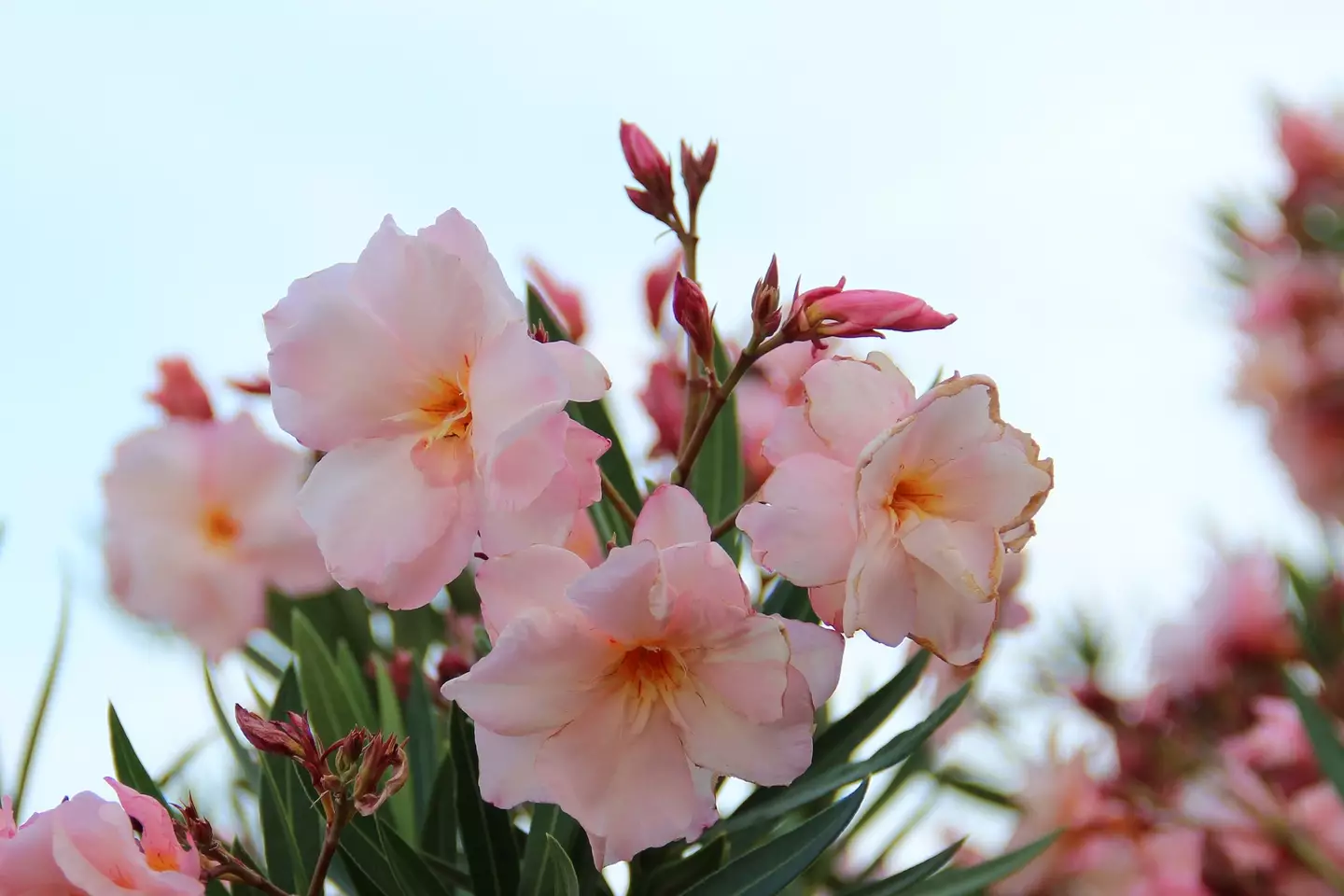
It seems our friends over in Australia aren't the only ones having to be cautious of things that can kill them on a daily basis, as a warning has been issued to Brits about the UK's 'most dangerous plant'.
Yep, it looks like we now have a contender with our pals Down Under... though thankfully, this warning isn't about an eight-legged creature the size of our dinner plates.
While the UK is known for its relatively safe wildlife and environment, there's still a few things we need to be cautious of - and this one is for all the gardeners out there who are keen to get back to work now the weather is picking up.
Gardening expert at MyJobQuote.co.uk Fiona Jenkins has identified the UK's most dangerous plant, revealing how toxic it is to both humans and animals.
Advert

The oleander plant
"The oleander plant is the UK's most dangerous plant due to it being very toxic for both humans and animals," Fiona said.
While the oleander plant is more common in hot climates and is native to the Mediterranean region, it has been known to plant well in UK gardens.
It is distinctive for its attractive star-shaped flowers that bloom all year round and come in a range of colours.
The dangers
Fiona warned: "This plant is very poisonous, and if you ingest even a very small amount of this plant, it can result in death.
Advert
"Physical contact with the plant can cause allergic reactions and severe skin irritations. It's important to keep oleanders away from children and pets."
According to the Mount Sinai Health System, symptoms of oleander poisoning include:
- Irregular or slow heartbeat
- Low blood pressure
- Weakness
- Blurred vision
- Nausea and vomiting
- Diarrhea
- Drowsiness
- Headache

The plant's clear sticky sap can also cause skin irritation or a rash on contact. Garden Design advises to not burn discarded oleander branches, as it can release these toxins into the air.
Alternative uses
Despite the plant's toxicity, it has actually been used for treatments in the past.
Advert
Holistic nurse practitioner and host of the Feminist Wellness Podcast, Victoria Albina, NP, MPH, said: "Oleander is a plant that has been used in herbal medicine since the 15th century.
"While it has been used for many purposes from hangover to cancer treatment to an antiviral, oleander must be used under the care of an extremely experienced clinical herbalist or other clinician as it is a dangerous plant that must be used with the utmost care, and is not one I use or would use in my clinical practice."
What to do around oleander plants
Intentionally planting oleander in your garden - especially if you have pets or children - is definitely not a good idea.
If you are walking in an area known to contain the plant, stay well away and make sure to have pets on leads. And of course, if you or a child were to ingest the plant, contact a doctor or health care professional immediately.
Topics: UK News, Environment, Health